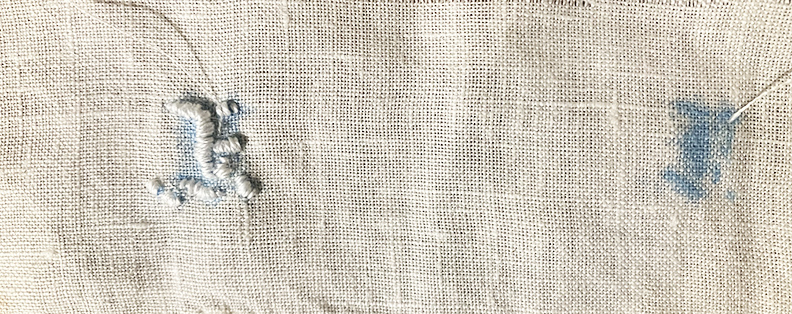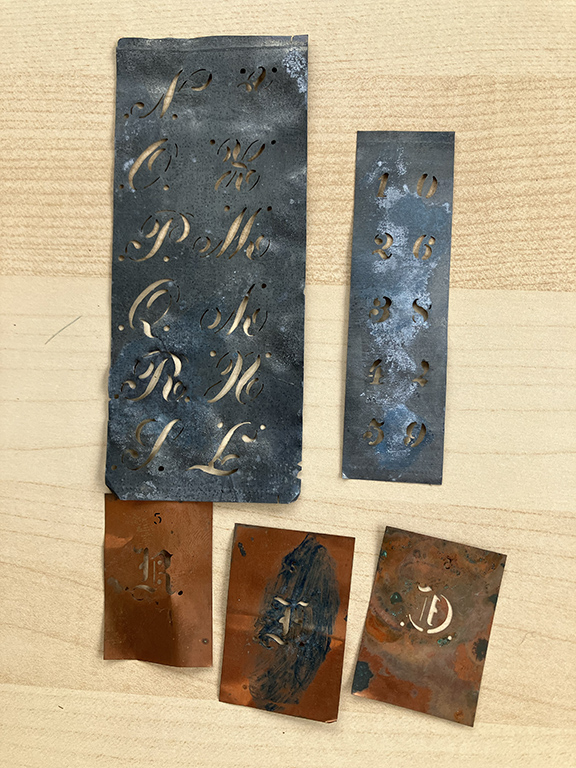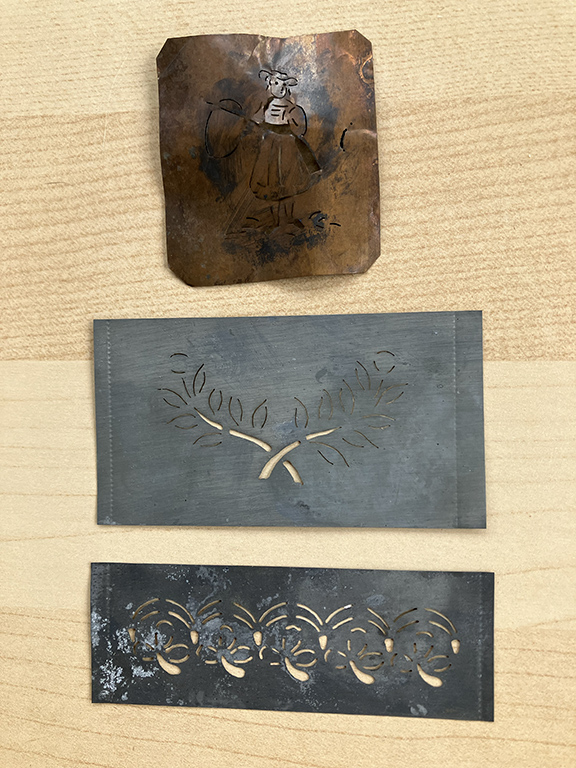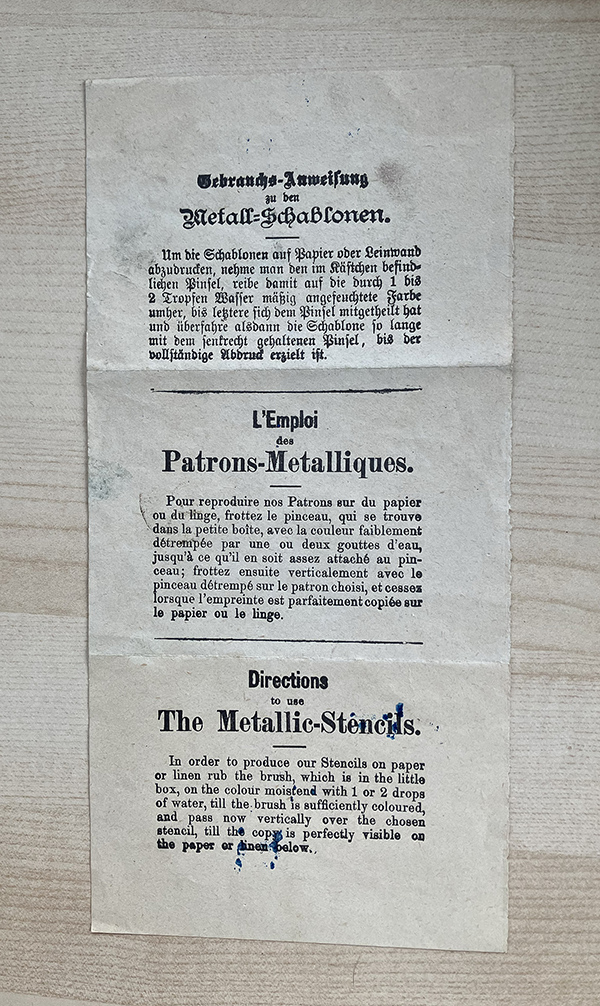Years ago my sister-in-law gave me a laundry marking kit. It dates from before 1930, and was from her Dutch family stuff. It’s an attractive object, and, because it’s a gift from her, I’ve kept it through many moves.
In the box, there’s a bunch of thin metal sheet stencils, mostly copper. One sheet has part of an alphabet, another has the numbers 0 to 9, there’s repeating motif that looks like it’s for borders, three large fancy letters, a picture of a child with a hoop and stick, and, to my delight, a laurel border motif. The laurel stencil has never been used, and, oddly, is a grey metal. I’m guessing that it wasn’t part of the original kit.
To mark the fabric, there’s a brush, and a tiny china dish with a tablet of blue pigment. I’m guessing it’s the same chemical as laundry bluing – ferric ferrocyanide aka “Prussian blue”.
And the instructions. In three languages, which is oddly nostalgic. We’re so used to multi-lingual instructions; somehow, despite the olde timey font, it makes the kit seem more present.
As for what was originally in the kit, again, I’m guessing. Almost certainly, it had all the letters of the alphabet, though I suspect the fancy individual letters may have been bought separately. I have no idea how many border or image stencils it included. Maybe some came with it, and maybe, like the fancy letters, they might have been bought separately.
The kit has obviously been used; the brush is stained blue, some of the stencils have blue brush marks, and the surface of the pigment tablet has been wetted and rubbed – presumably with the brush.
There are also several things that don’t appear to belong – another tablet of pigment that’s too big for the dish, a pair of tweezers, a tiny ivory-handled crochet hook, and an ivory object that looks like it’s for cleaning under fingernails. I suspect that, at some point, someone tucked them into the box just because they fit.
But I’ve never actually explored using it until a convo with The Sempster nudged me into seeing how it works – or if it still works.
It does. I fished out a scrap of handkerchief linen, wetted the pigment, rubbed the brush over it, and marked the linen using one of the fancy letter stencils. I wet the pigment too much, so it came out wet & blurry, but, with a good light and a bit of squinting, one of the two marks was clear enough to embroider over. So I dug out a skein of cotton embroidery floss and did a bit of quick&dirty embroidery.

Then I washed out the blue. The marking material doesn’t wash out with just water, hot or cold. Since I don’t know how old it actually is, and might predate detergents, I used laundry soap. Though it took some persistence, and much hot water, it did eventually wash out
This was a sentimental practice run with a small, mundane object. Somewhere in the process, I realized that all of the napkins and handkerchiefs that I have that date back to the 1930s or earlier have embroidered monograms. I had assumed that that was just how it was done – a status marker, a way of saying “MINE!”.
That’s probably a large part of the reason, but, essentially, they’re marked so that the laundry gets the right piece back to the right person…












Recent Comments